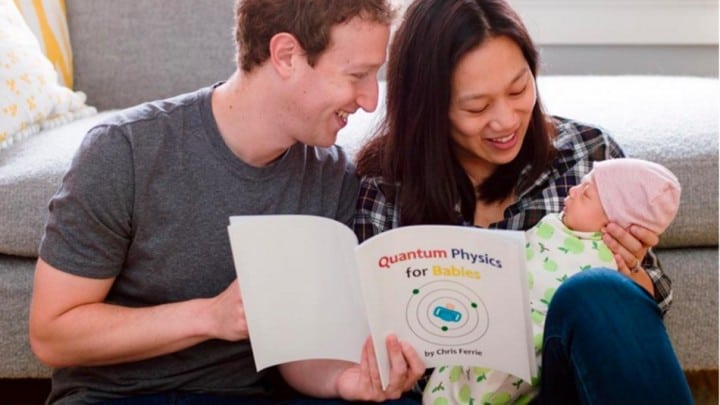
Millennials have experienced two major recessions in their lifetimes. Now, they’re surviving a global public health crisis. It’s little wonder that these events have shaped a generation as the oldest among them are turning 40.
In 2019, millennials replaced the baby boomers as the largest generation. At the same time, the Centers for Disease Control and Prevention reported the lowest birthrate in the United States in 32 years. What does it mean when the largest generation opts out of the parenting game either by choice or by necessity?
The millennial reproduction drought can’t be explained as simply as the World War II impetus for the baby boom. It’s a little more complicated, involving more than one overarching factor. Here are a few of the reasons millennials aren’t having many – or any – kids.
Preventing Pregnancy and Getting Pregnant Have Never Been Easier
Aspiring parents have far more options for contraception now than in the heyday of the baby boom and decades that followed. These contraceptive methods suit millennials’ busy lifestyles with online birth control availability and long-term birth control methods that don’t require a daily dose. Some options also skip the symptoms that can be caused by hormonal prevention, making them more attractive to millennials.
Some millennials, on the other hand, may want to have children sooner rather than later. There are risks to waiting until you’re older to become pregnant if you do plan to have a child. Fertility rates drop rapidly with age, decreasing a woman’s odds of conceiving. Science may buy some additional time.
Access to in vitro fertilization (IVF) is far easier to obtain now that it used to be. IVF can dramatically increase the odds of conceiving and delivering a baby. Use and reliability of the method is increasing as worldwide birth rates decline.
There are other reasons older millennial women may succeed in conceiving. Smoking rates are lower. Plus, it’s easier to maintain a healthy diet with the increased accessibility to fresh foods via online delivery apps. Women are also being urged to begin taking prenatal vitamins before they become pregnant, boosting conception odds and improving child health.
Birth control has come a long way from the original pill. As the science of conception improves, so do chances for millennial women to choose when – or if – they want to conceive.
Economic Anxiety
It’s logical that a generation that’s lived through multiple major economic downturns before reaching middle age would be financially wary. An always-rising cost of living makes having kids an expensive proposition. Recent estimates put the cost of raising a child at a whopping $230,000.
Millennials aren’t focused on their careers only because they want to climb the corporate ladder. They also want to earn enough money to pay off pricey student loans. There’s little buy-in for incurring the expense of having a child with that kind of debt hanging over them.
Wealth is also an issue. Although millennials comprise a majority of the population and the workforce, they control less than 5% of the country’s wealth. Boomers hold 53% and Gen X captures 25% of the wealth. Millennials have four times less wealth than Boomers did at the same age.
Credit and savings are other issues. No doubt attributable to that student loan debt, many millennials eschew credit cards. Their contributions to savings and retirement accounts outpace what older generations were doing at the same age.
In addition to student debt, an expensive housing market and sketchy job security have millennials waiting to buy homes. A significant lack of affordable childcare and paltry family leave policies leave few options for working parents. Top all that off with the exorbitant cost of health insurance, and you’ve got a perfect storm for economic anxiety.
Given a choice, many people would prefer to wait until they were financially stable before embarking on the parenthood journey. They would also like to bring their bundle of joy home to a home they own. For millennials who do choose to have kids, the numbers will likely need to add up.
The End of the World as We Know It
The past few years have been particularly tough. The world has been polarized by political division, civil unrest, and a public health crisis. Climate change continues to cause natural disasters of epic proportions.
It’s no wonder that those in their childbearing years might be concerned about the current state of the world. Millennials aren’t necessarily a pessimistic generation. Nonetheless, they are worried about the future of the planet and might be concerned about bringing children into it.
The global pandemic spurred many millennials to reassess their financial, career, and family plans. A CNBC/Harris Poll found that 25% of millennials ages 33 to 40 decided to wait longer to start a family. Moreover, 19% decided to have no children at all or no more children than they already have.
For some of those women on the upper end of the age range, the decision may be made for them. Despite medical advances, many may find themselves unable to conceive or carry a fetus to term.
Millennials aren’t just waiting in the wings, hoping older generations will take care of what ails the world. Along with Gen Z, they’re leading the charge for social justice, climate change, and world peace. Moreover, they’re practicing what they preach in their own life choices.
It’s true that many Millennials may not want to bring kids into the world as it is right now. But they could affect change that could make future generations willing to do so.
Millennials could perhaps be called the generation that waits. They wait to move out of their parents’ home, get married, buy their own home, and get pregnant. In doing so, they’re setting new social norms that may or may not become tomorrow’s norms.
Millennials tend to live deliberately, making choices they believe are good for the planet as well as themselves. The decision to have or not have children is a big one, and one this generation doesn’t take lightly.




